Why are we so tired all the time?
or Why Indian Millennials are living through 'The Great Squeeze' and how to escape it.
You’re probably reading this sitting in mind-numbing traffic, which has come to define living in metropolitan India. Or during a workday at a job that gives you no joy or sense of fulfilment. You may have discovered this while scrolling through the many WhatsApp groups you’re a part of.
Your mind has started to drift already. The Swiggy IPO happened, and 5000 people became crorepatis. Your thoughts drift to your portfolio, which has seen some wild swings this year. You open your investments app to check the returns on your long-term wealth-building SIPs. You just checked it yesterday, and your rational self knows nothing changes daily. And yet, you do it anyway...
Your mind wanders to your conversation with your spouse over the weekend. Because the weekend is the only time you guys talk. Your partner suggested that you relook at the coverage of the family floater health insurance, you tried to avoid the conversation because it would mean accepting that your once energetic and active parents are getting older. The signs are too clear to ignore, but it means that you will need to acknowledge the problem, and not bundle and throw it away into the part of the brain which is ‘For Later’.
You told your partner that you will look at the insurance during the week, but secretly hope they forget about it. You check the time on your phone, and there is a picture of your daughter smiling back at you. How will this little girl grow up and face the world, who will she become - and you wonder if her career has been invented yet. An email pops up to remind you of the Gen AI upskilling course you had expressed interest in. You know as a 30-something Professional-Managerial Class (PMC), that the workplace is changing faster than you can keep up. You’ve survived a couple of rounds of layoffs, with the company trimming ‘fat’ at the top levels. One of the guys who got laid off ended up having a panic attack in the parking lot. Your annual health check is due, and you start looking at appointments before this is one more thing your partner has to chase you on.
But then you remember that it’s Friday night. A glorious weekend awaits you, where you can shed all the stresses of the week, and get some alone time. Only to remember that your daughter has to be driven and picked up for her football class, and you also need to go to the bank on Saturday - RBI had a rate cut, but your home loan interest rate has not dropped at all. You wonder if buying a house was the right decision, the EMI does feel a bit too much sometimes, but then in this job market and rising rentals, at least you have a roof over your head. But it comes at the cost of that Euro trip, those two weeks in the year that will help you forget all your problems.
And just then you realise that variable pay will hit your account next month, and maybe it’s time to get that onerous Schengen visa. Your partner too inherited some money from their grandfather, so a family trip sounds like a great idea.
A month later, you’re on that trip - the Italians know their gelato well, and the duomo in Florence is worth all the hype. You walk 10 km every day, and then go back to your hotel and sleep like a baby.
But a sense of dread starts building up while you wait to board your flight back home. At work, the annual planning exercise is coming up, and you have no motivation left to sit through pointless meetings. The job does pay well though, and you could do worse. But do you find it fulfilling? Ah, you need to sort out that health insurance. Your daughter may want to study abroad, so you should allocate more money to your SIPs .. all of this just feels like too much pressure.
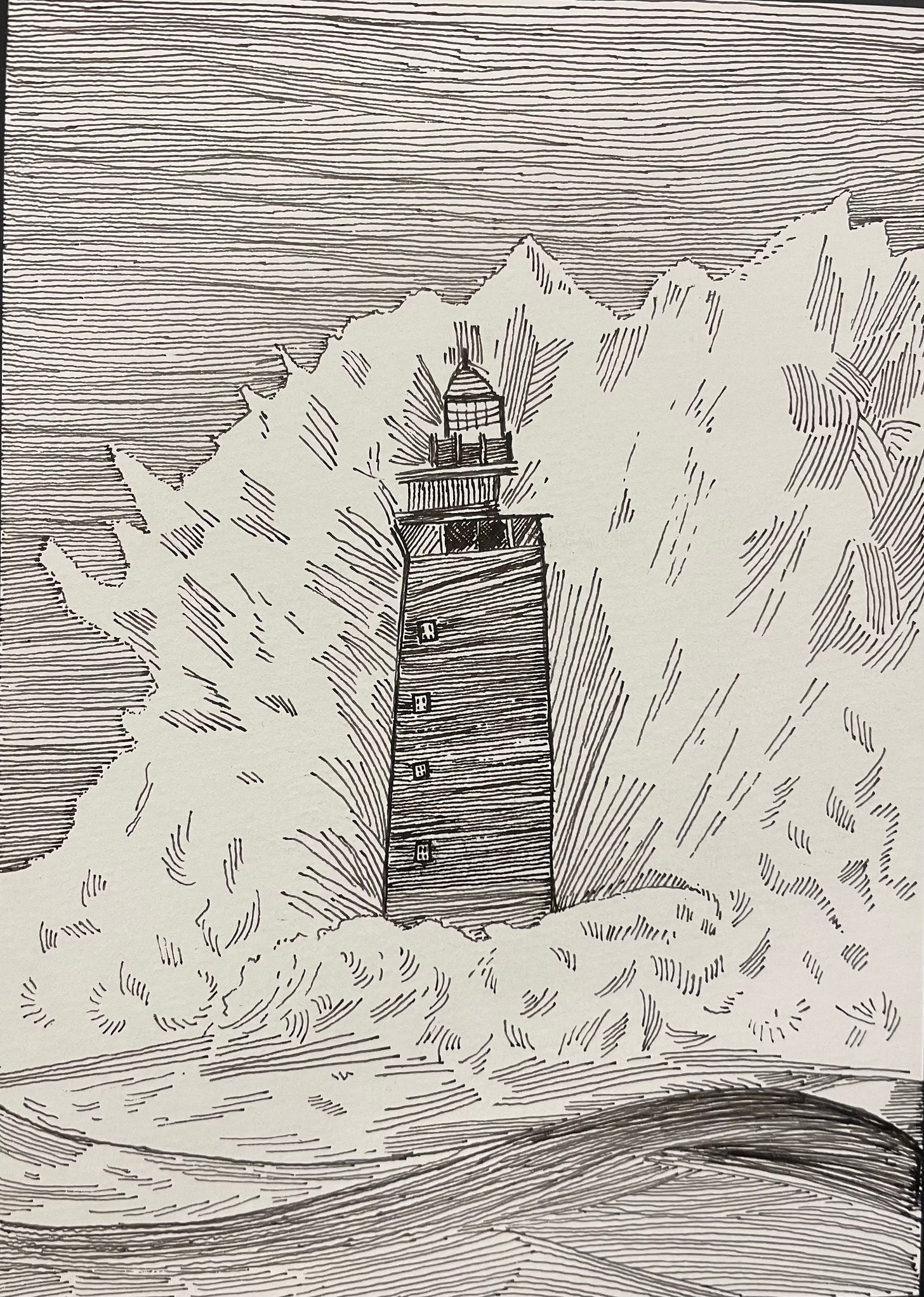
If you’re still here with me, I know why. Because a variation of this script is your current life.
You, the Indian Millenial, are living through The Great Squeeze.
Before we get to The Great Squeeze, sample this
There was a nearly 1,000% surge in the sales of medicines containing a combination of Escitalopram (antidepressant) and Clonazepam (sedative) in 2023, compared with the year-ago levels, according to pharmaceutical market research firm, Pharmarack. - as reported in The Ken.
A 2020 survey conducted among 10,000 Indians found that 74% were suffering from stress, while 88% reported experiencing anxiety post-pandemic. - as reported in The Swaddle
These are merely symptoms. To understand the larger underlying problem, let’s take a step back to the generation before us Millennials.
Boomers, our parents. Those who were adulting from the 1970s to the 1990s
They married at 24, probably running the household on a single income. The first kid was at 27, the second at 30. Having a radio was a given, however, the arrival of a washing machine was a life event, with your mother celebrating the escape from the drudgery of washing clothes. They most likely used a neighbour’s telephone to receive calls and then switched to making them with the coming of STD ISD PCO. LTC funded their summer vacation, and in some cases, it came once in two years. In any case, vacations always meant going to your Nani’s (Maternal Grandmother) place, where one did not have to worry about hotels and food.
By the time they were in their mid to late 40s, they started thinking about buying a house, in a colony that was outside the city. In their 50s, they were looking to get us married off - so much so - that the Boomer goal was to have both kids ‘settled’ by the time they retired. Only then, did their first trip abroad happen. You most likely booked them on a Thomas Cook tour or funded a family vacation.
They saved enough to put a roof over their heads and live their simple lifestyle. They’re getting older and less agile now, they’re tired and you can see it.
But their life had a pretty linear trajectory, and they were in no rush to meet their goals.
Now the one thing common between you and your parents is that you too are tired - All The Time. Exhaustion seems to have become a way of being, and there is a peculiar reason for it.
The Indian Millennial today is living under The Great Squeeze. We have been pushed to achieve everything in a short period, and are hyper-focused towards our goals. Goals that are physically, emotionally and economically crushing us.
Economically, we are forced to build wealth for three generations.
First, for our parents, for they had such little avenues to make money, and whatever they had, they spent on either unwise real estate deals, lost it to family property disputes or invested it in your future. They are one medical emergency away from bankruptcy.
For our children, as they are growing up in a world that is increasingly hard to comprehend - Right from political turmoil to climate change to the rising cost of essentials. You feel pressured to send your child abroad for their bachelor’s undergrad degree, and that costs a pretty penny. And if you have two kids in this economy, I sincerely hope you have ESOPs of companies going public soon.
And lastly, for yourself. Unwilling retirement for the Professional-Managerial Class (PMC) is becoming a thing, which means you may have limited years of stable salaried income. You’ve escaped the money trap your parents were stuck in, but have created a Desire Trap for yourself. You want it all - A vacation on the Amalfi coast, a top model car that sets you back by 20 lakhs (and sits in traffic most of the time) and a house in a gated society. You want to eat at the best places and buy goods just shy of luxury. But this too does not satisfy you, and you go finding novelty through a new experience every other week - a pottery class, supper clubs, open-air screenings followed by Q & A with the director, transformative meditation sessions, a tasting menu at a Japanese pop-up, and yet, something feels missing. You no longer know if you’re doing this because everyone else is (a thin desire) or it genuinely interests you (a thick desire). It’s hard to tell if you wanted the 20 lakh car or if you bought it because everyone seemed to have it.
You’ve started to treat experiences like things. The first wave of questioning consumption asked us, to buy experiences, not things. We now treat experiences as things, constantly accumulating them. We are continuously expanding our bucket lists, without gaining intrinsic value or joy from them. It’s called Experience Hunting.
The Indian Millennial has turned the probable into the possible. We have made lifestyle and goal inflation the norm, forgetting that achieving them is unrealistic, especially on a crunched time scale. ‘Stretch goals’ are our reality.
We’re living with health anxiety. Continuous Glucose Monitoring (CGM) sensors are growing at a CAGR of 17%. We are talking about alkaline water, magnesium supplements, micro-dosing and yet struggle to get a good night’s sleep consistently. We cannot make head or tail of healthy, young individuals dying of heart attacks. More adults are getting diagnosed with some form of neurodivergence - and the relief that comes with finally being able to explain so many of their thoughts and actions. But with it, also comes the frustration of years wasted in living with an undiagnosed condition. Heat stress is already a reality of our lives, and if you have children, you have a baseline level of anxiety about the earth they’re inheriting. You read an opinion piece about COP 29 being an utter failure, and wonder where we’re headed.
In this entire जद्दोजहद (jaddojahad), you are supposed to find time for self-care, upskilling, reviving fraying friendships, catching up on the latest OTT show and have enough patience to practise gentle parenting (towards your kids and your parents). The graph of our lives looks like this
But not all is lost.
There is no one single antidote to escaping The Great Squeeze. Many of these challenges are systemic - and at least I am unlikely to change those systems myself. Yet, what I have control over are actions I can take. And here are a few that have known to work (for the privileged like us who have the leisure time to write articles like these).
Chase satisfaction and happiness will follow
In 2018, I took a 3-month sabbatical to slow travel. I spent a month in Bosnia & Herzegovina, a month in Georgia and Armenia, and a month living out of a one-room cottage in the Himalayas.
I did not have any epiphanies or life-changing insights. But living with the locals in the Himalayas, seeing the rhythm of their life and in conversations with them, I discovered this (and which, Daniel Kahneman, too had discovered in a lab)
Happiness is a momentary experience that arises spontaneously and is fleeting. Meanwhile, satisfaction is a long-term feeling, built over time and based on achieving goals and building the kind of life you admire.
It’s not happiness that will give us satisfaction. We are constantly asked by the world to chase happiness. And we are led to believe that it will come from acquisition - of things, of status, of money and power. And now of even experiences.
A simple equation of life we seem to have gotten wrong. We’ve gotten the cause and effect completely the other way around.
I ended up doing an episode about it on my podcast
Great insight and everything, but how does one implement it? Now comes the harder part ..
Slow down, do fewer things
At the heart of slowing down and doing fewer things lies the lowering of our expectations, our desires and even our goals. Here is a great way to do this.
Pick ten goals/things/milestones you want to achieve in 2025. Write them down in order of importance. Do this on a sheet of paper.
Now strike out the bottom seven.
The three that remain on the top are the only things you should focus on. They are the ones that matter to you.
The culling of the bottom seven does not mean they are not important to you. They may come from different domains of your life, but they are not important enough to be done now. Eventually, one of the following will happen
a. They are important and next year, they will make it to the top three
b. They are not important, and will not even make it to your top ten next year.
Once you decide to do fewer things, you will give yourself space to breathe, relax and just be.
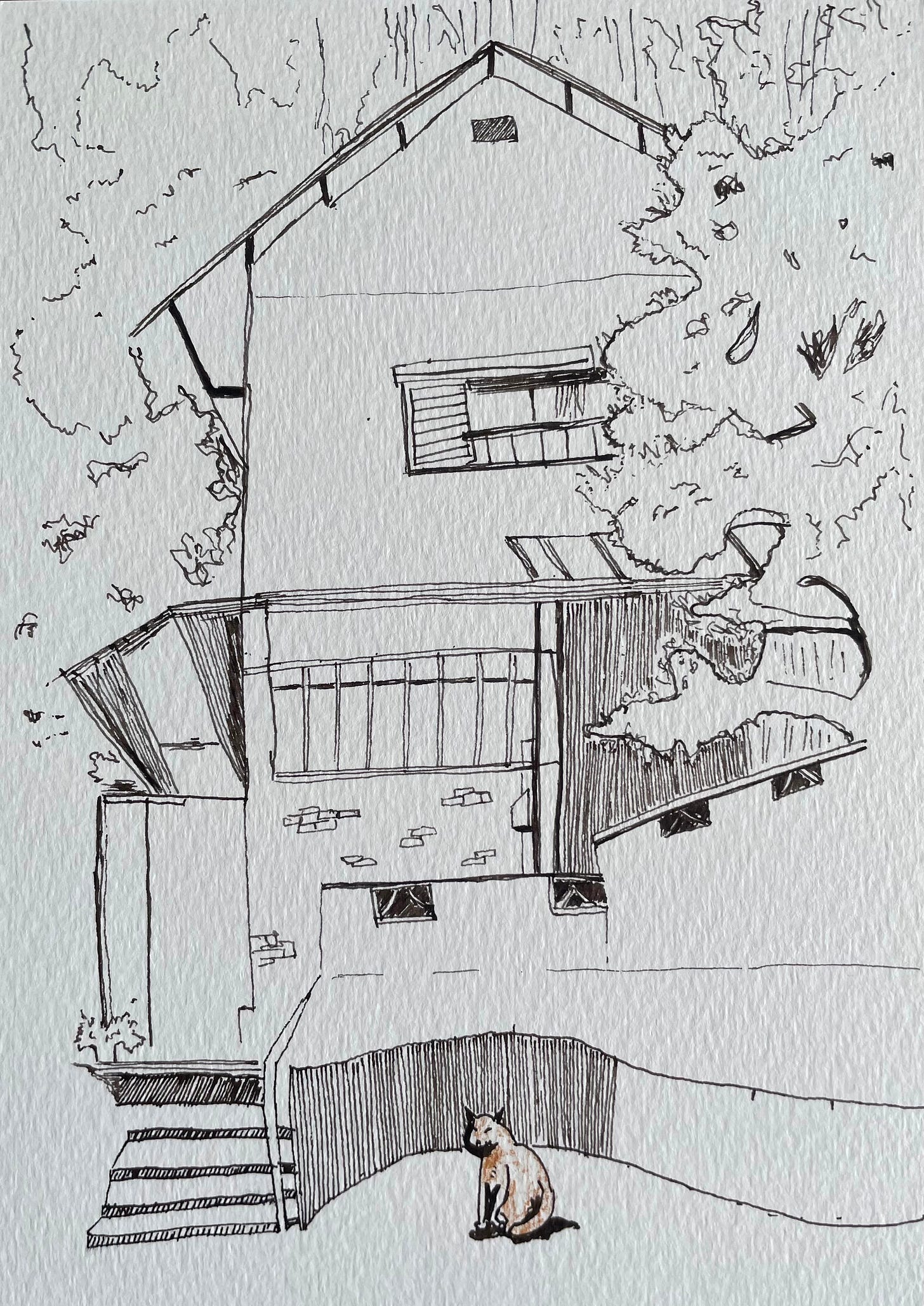
Find a community, or build one
The idea of a community is simple: It gives you a purpose beyond yourself. As self-serving as the previous point may seem, this one is less about you.
As a migrant many times over, I have found to be at the receiving end of the generosity of communities - In my latest migration that landed me in Bangalore, I have found two communities, one centred around food, the other around writing, two of my enduring passions. When I could not find one that celebrated creation and creators, I embarked upon building one with The 6% Club.
In a world where old friendships are fraying under the pressure of everything from modern living to political leanings, you need a community to feel connected again.
A community of like-minded individuals can help one discover joy, make new connections and revel in the beauty of being a part of something greater than yourself.
Do art, for art’s sake
In 2017, a group of psychologists, biologists and linguistic experts from the Max Planck Institute in Germany aimed to understand the psychological effects of poetry.
What they discovered was that rhyme and rhythm have been shown to intensify emotions at a neuro-chemical level. Poetry activates brain areas such as the posterior cingulate cortex and medial temporal lobes, which have been linked to introspection. It ignites the region in the brain associated with being in a restful state. And the same areas are lit up when one listens to music.
Writing or reading poetry (or any form of art, actually) helps the brain create new narratives and stop replaying the same worrying thought patterns over and over.
It activates neuroplasticity processes in the brain - by making a memory and learning new things, you are making some synaptic connections stronger and some synapses weaker.
You are building a circuit that did not exist.
I chose sketching because it allowed me to lose track of time. Sketching taught me to see, to notice and not merely look. I suddenly started thinking about perspective, scale and how negative space is a powerful element in sketching. I realised how different it is to draw a calm sea vs a violent ocean, and how the two evoke different emotions in us. I had always appreciated blue skies, but I now appreciate how much clouds add to the landscape, and to our perception of beauty.
As Alain De Botton notes in his book, the Art of Travel
In the process of re-creating with our own hands what lies before our eyes, we seem naturally to evolve from observing beauty in a loose way to possessing a deep understanding of its constituent parts and hence more secure memories of it.
One thing that I unlearnt is the idea that everything is a means to an end. I learnt that this principle of capitalism, which we apply to ‘work’, does us a terrible disservice when applied to ‘play’.
It taught me to do art for art’s sake, to use it as a way of self-expression or just to ‘be’.
If you have come this far, I will leave you with one final piece of advice that applies to all the antidotes listed above.
Take the smallest possible next step
All worthwhile things in life seem like grand endeavours, to be undertaken when the time is right, resources are at hand, and you are in your best mental state. You can paint a picture of success, and have a clear path to get there.
However, we are often sitting at the starting line, dreaming of our amazing ideal future selves.
What we need to do is
Take the smallest possible next step.
Make it ridiculously small.
So tiny that it is impossible to NOT do it.
You want to start playing the flute. Search online for a teacher. Call just one teacher. And talk to them.
You want to find a community of runners. Ask your friends if they know anyone who runs.
You want to cut down on wasting time on social media. Delete Instagram from your phone, and log in through the laptop like a Luddite.
By completing the smallest step, you would have moved away from the space of inaction (and the associated misery and guilt) to a space of action (You have wrested a tiny amount of control from the system).
And this action will propel you to take the next one, and the one after that ..
Till taking the next smallest possible step becomes second nature to you.
Thank you for reading this far. And now time for a plug. I along with a friend run The 6% Club - India’s first creator coaching program, designed for people with full-time jobs. We espouse the joy of creation and fundamentally believe that it can be therapeutic. We take you from idea to launch in 45 days.

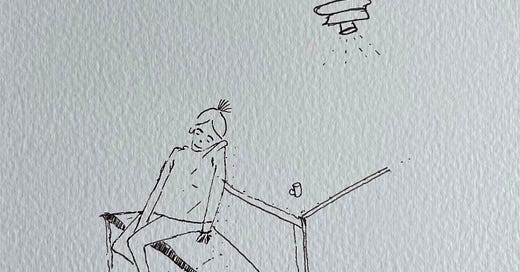



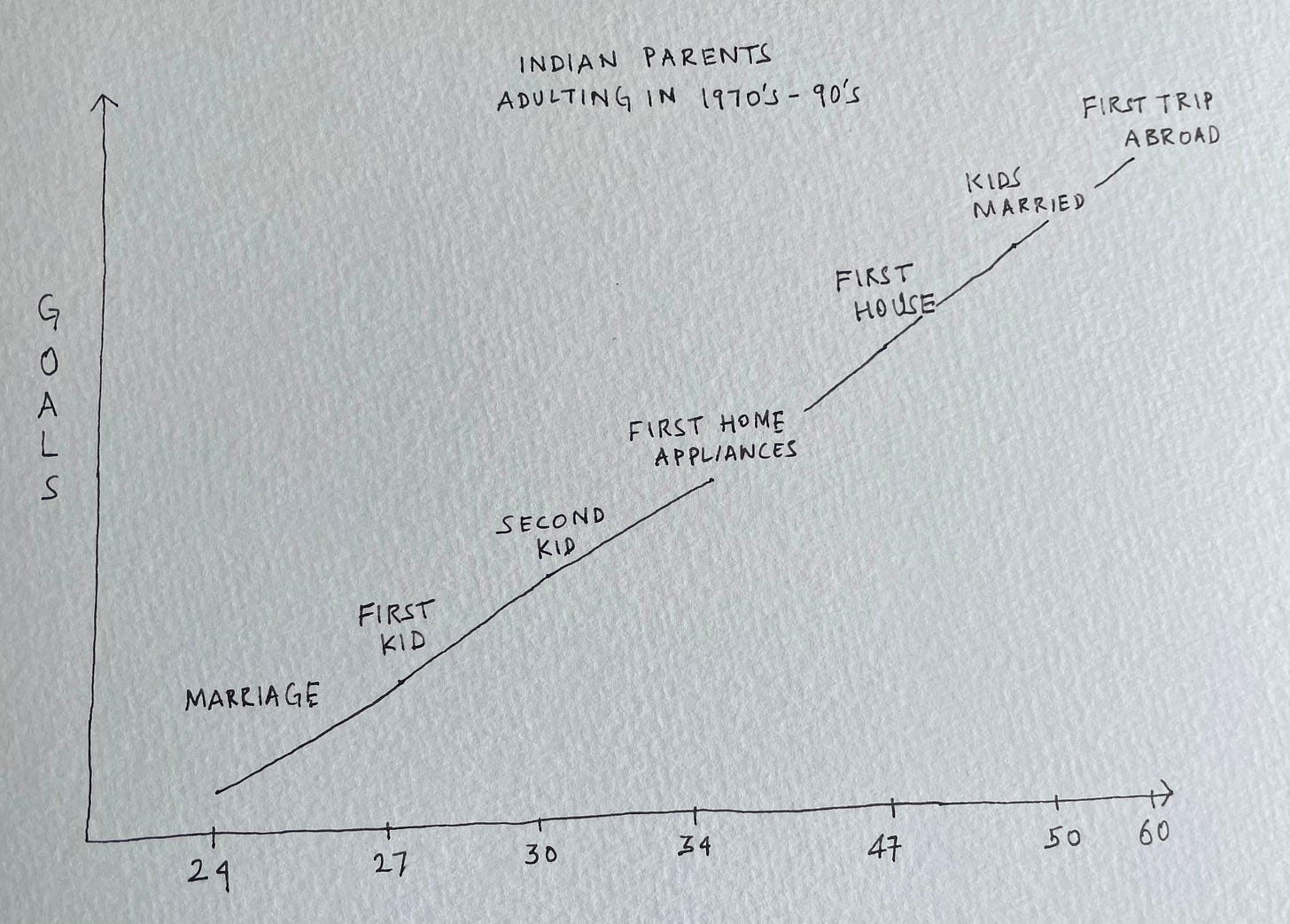
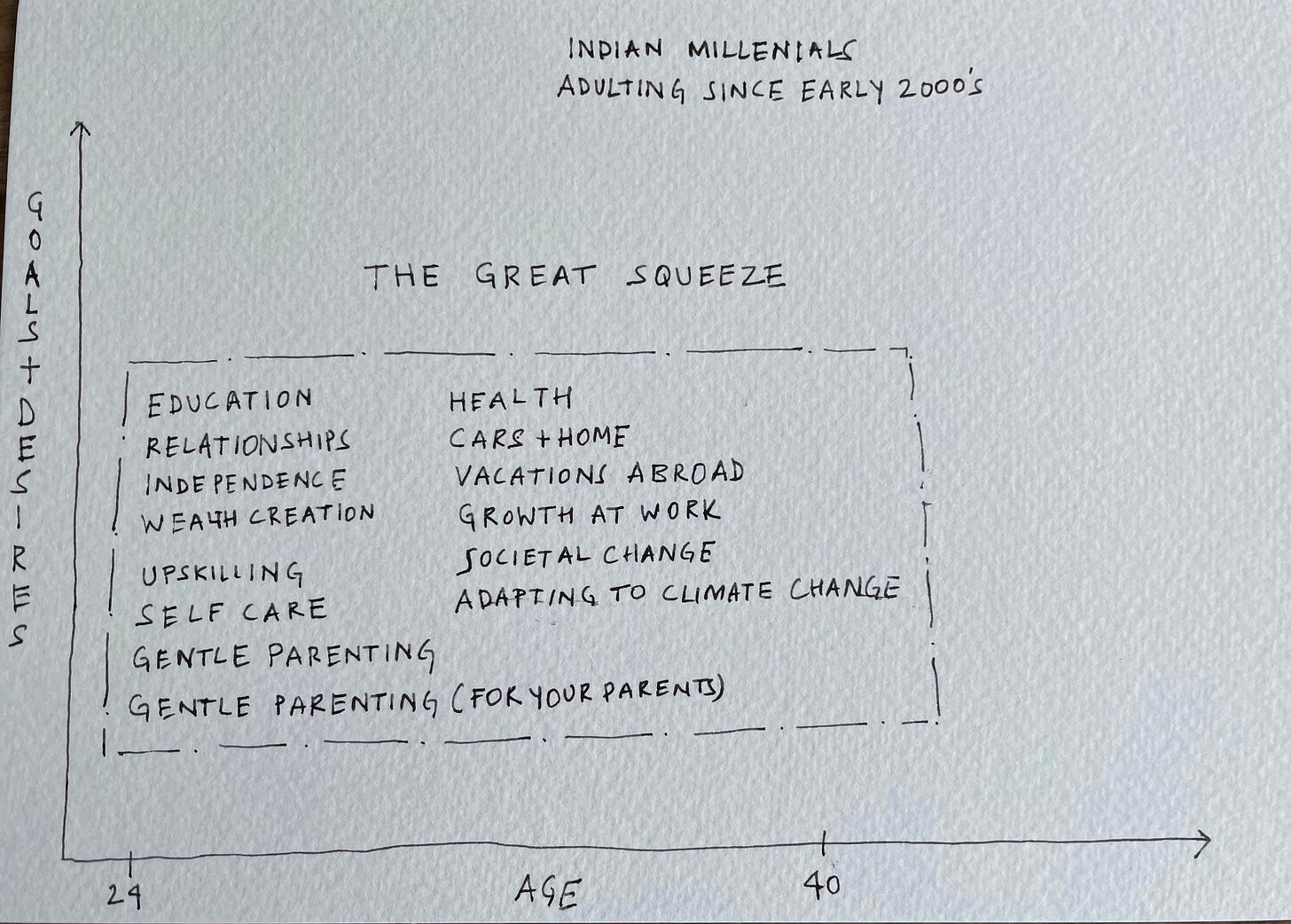
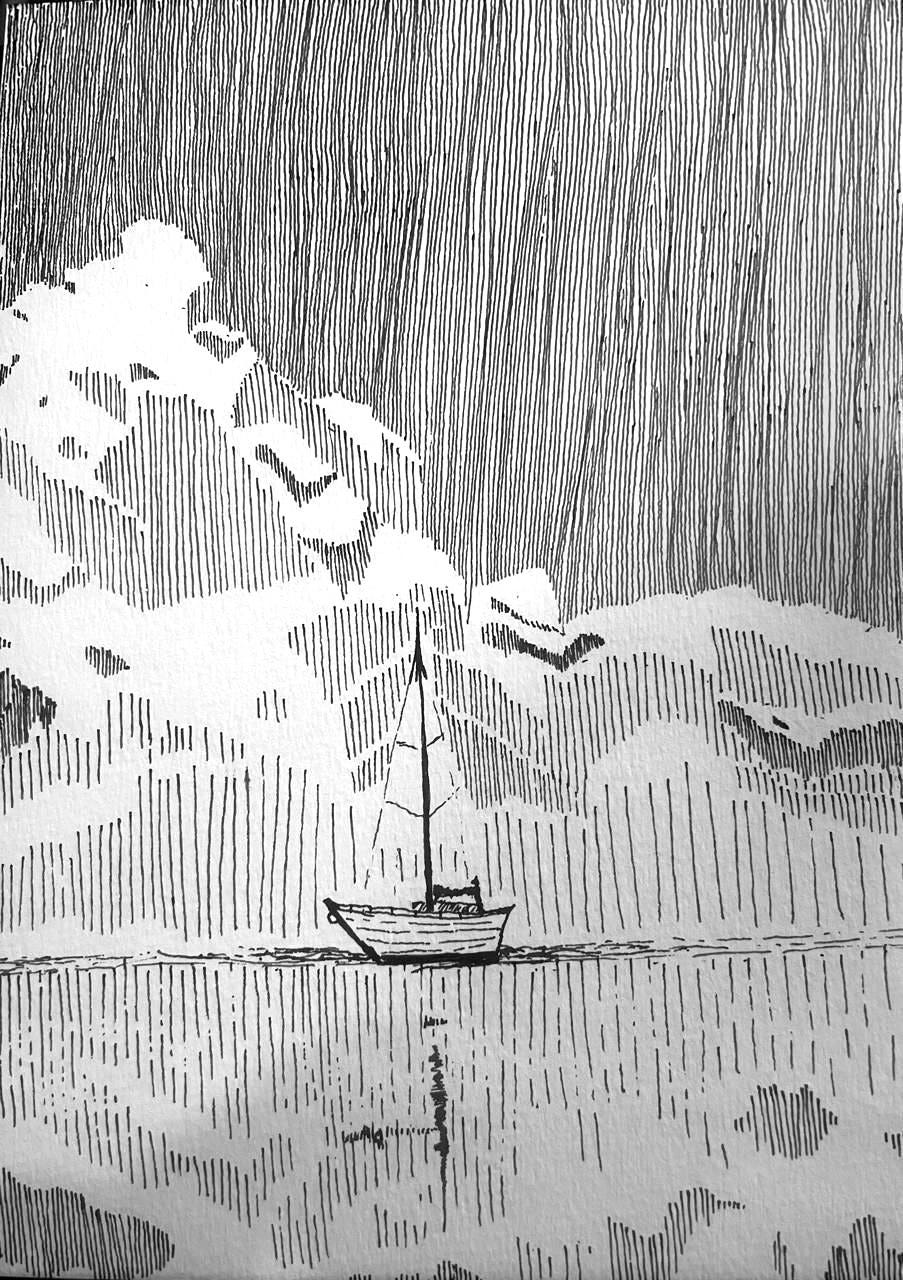
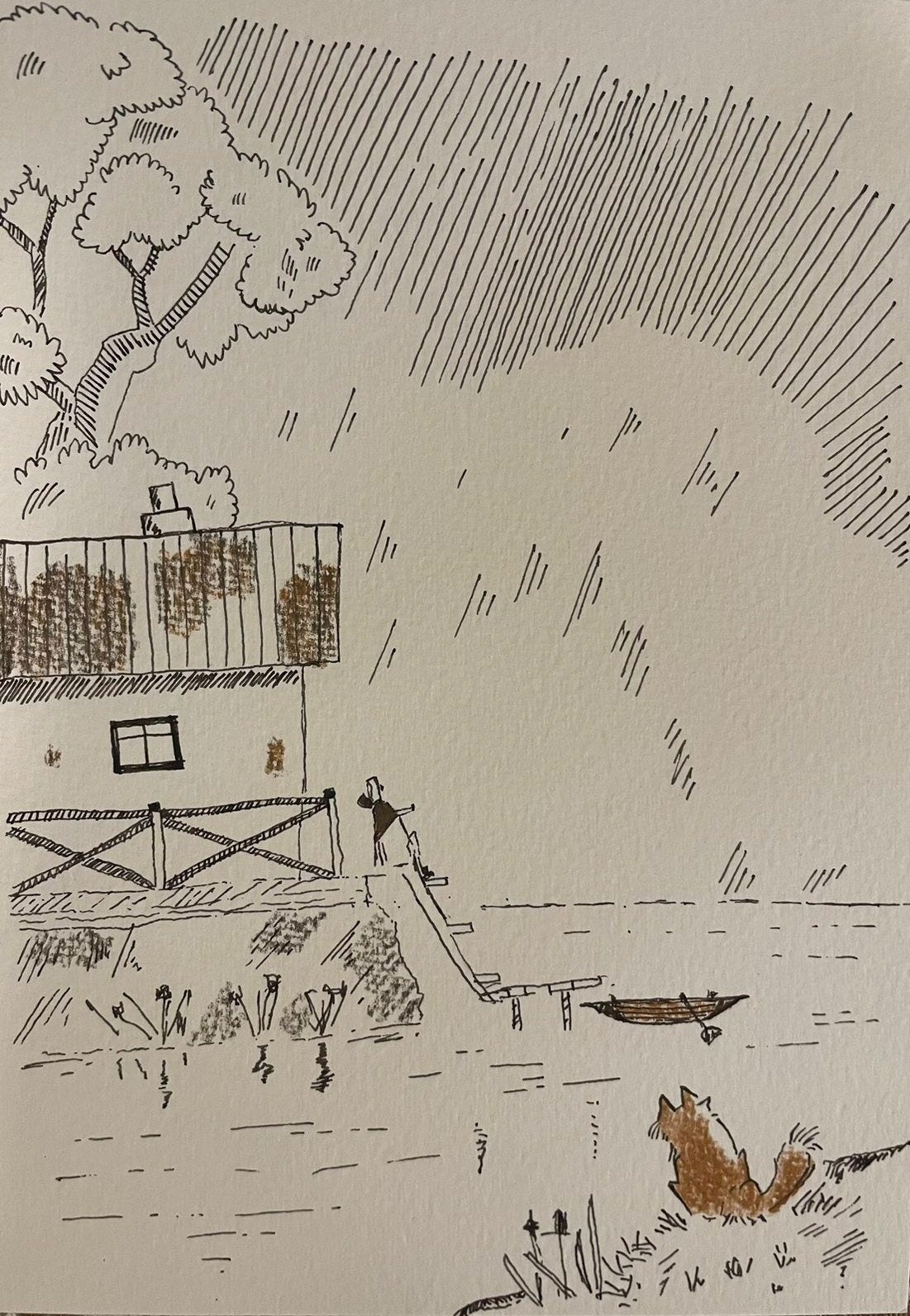
I was squirming as I read the first half of this essay. I felt like an insect under a microscope, being observed closely. I'm sure many others feel the same because this is a collective reality. A few things stood out for me. One, what you said about us treating experiences like acquisitions. It reminded me of the chapter in Four Thousand Weeks in which Oliver Burkeman talks about how the internet and connectedness has opened up whole new worlds and experiences for us, but also simultaneously made us feel our own limitations strongly because there is absolutely no way on earth that we can have all the exciting experiences that are out there. Two, what you said about the pressure to be on top of everything. Build wealth for parents, a future for children, health for ourselves... When I speak to older relatives, I get the sense that most of them didn't think about so much. They made do and did their best within the possibilities life offered. Whereas we now know how many of our contemporaries have FIREd and what causes our blood sugar to spike and who got promoted and every crime and injustice happening to humans and the planet in every corner of the world. We feel like we should know about all of this and not just that, also take steps towards solving/supporting them. It's a lot to deal with. No wonder we feel exhausted.
I like how your coping methods are all about cutting back, slowing down and making meaningful connections. In our bones, we know this is the only way. I think it's mainly FOMO that makes us hold onto old habits that don't serve us well anymore. I am trying to live the next few weeks differently and this essay came just at the right time. Thank you!
I kind of want to print this piece and make it the wallpaper--of my house. Reading it gave me solace. Thank you for writing this, Utsav!